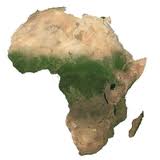 President Mahama has revealed that ?Africa has been experiencing a tremendous amount of economic growth and is generally adjudged to be the second fastest growing region in the world in the last decade.?
President Mahama has revealed that ?Africa has been experiencing a tremendous amount of economic growth and is generally adjudged to be the second fastest growing region in the world in the last decade.?
Speaking at lecture on Ghana?s evolution as a democracy and its growing economic development at the Kennesaw State University?s event which was dedicated to Ghana, President Mahama stated that there were strong indications that Africa?s GDP will expand.
?There are strong indications that Africa?s GDP will continue to expand as new frontiers of national economies and investment opportunities shift global investment capital in her direction contrary to the ?lost decade? view that poverty in Africa will continue to increase, the opposite is the case.?
Below is the full statement delivered by President Mahama
It is a humbling moment for me to address this gathering today on the role of democratic governance and sustainable economic development in Ghana, as the country continues to distinguish itself as a model for the continent.
I salute the rich history of this great University as well as its sustained effort in pushing the edges and consolidating the liberal values of American society.
I appreciate this opportunity to interact with you today on how we can enhance our collaboration to improve our governance systems, consolidate fundamental principles of personal empowerment and to meet our economic objectives. The Africa we all knew, no longer exists, and in the next half hour I will explain the current opportunities on the continent and the new policy directions that are implied by them. Earlier this year, we celebrated the fiftieth anniversary of the African Union.
In Addis Ababa, we spent just a few hours celebrating. The rest of the time, we assessed the opportunities and challenges for Africa in the next fifty years and the plans that we must together agree on and implement in order for Africa to claim the future. This is the only way Africa can redeem its past and forge a peaceful and prosperous future for its people. For far too long, Africa has been discussed in both academic and policy discourses with pity and extreme pessimism. There is an obvious need to recalibrate the global narrative about Africa, especially in the context of the many positive developments and the enormous potential of the region, going forward.
This narrative of pity has been instrumental in shaping the policies and tactics of international development assistance including of NGOs, tapping into the generosity of individuals who make charitable donations.
That industry has for decades spawned an international marketing ploy embedded with the most negative popular representational images of Africa, the better to raise billions of dollars ostensibly in aid for a dying continent.
It is time to reverse that narrative, using the platforms we just used in New York, during the UN General Assembly debates and this platform here at Kennesaw. 3 As we make interlocutors like you intimately familiar with the fast-paced changes occurring in Africa, we calmly, but effectively undo the widely accepted representation of Africa as the Dark Continent. Yes, Africa is a dark continent, but it is dark only in terms of the deliberate absence of illumination, an illumination that will portray to the rest of the world a continent rich, virgin, budding, peaceful, friendly, continuously learning, ready to do business.
The thrust of my message appears to ignore the vivid and scripted images of ethnic conflict, political instability, dictatorial governments, a region lacking economic opportunities, with high levels of abject poverty, and where millions die of HIV/AIDS.
Commenting on this pessimistic view of Africa in the 1980s, Professor Ali Mazrui, one of Africa?s finest academics said: ?Africa is the first habitat of man but it is the last to be made habitable; Africans are not the most brutalized of all people but probably the most humiliated in modern history; African societies are not the closest to the West culturally but have been experiencing the most rapid pace of westernization; Africa is not the poorest of all regions of the world in terms of resources but it is the least developed??
In that Africa of the 1980?s, it was projected that the number of Africans living in abject poverty will increase into the distant future rather than decrease, as the HIV/AIDS pandemic also exerted pressure on government resources.
Click here to read more.

